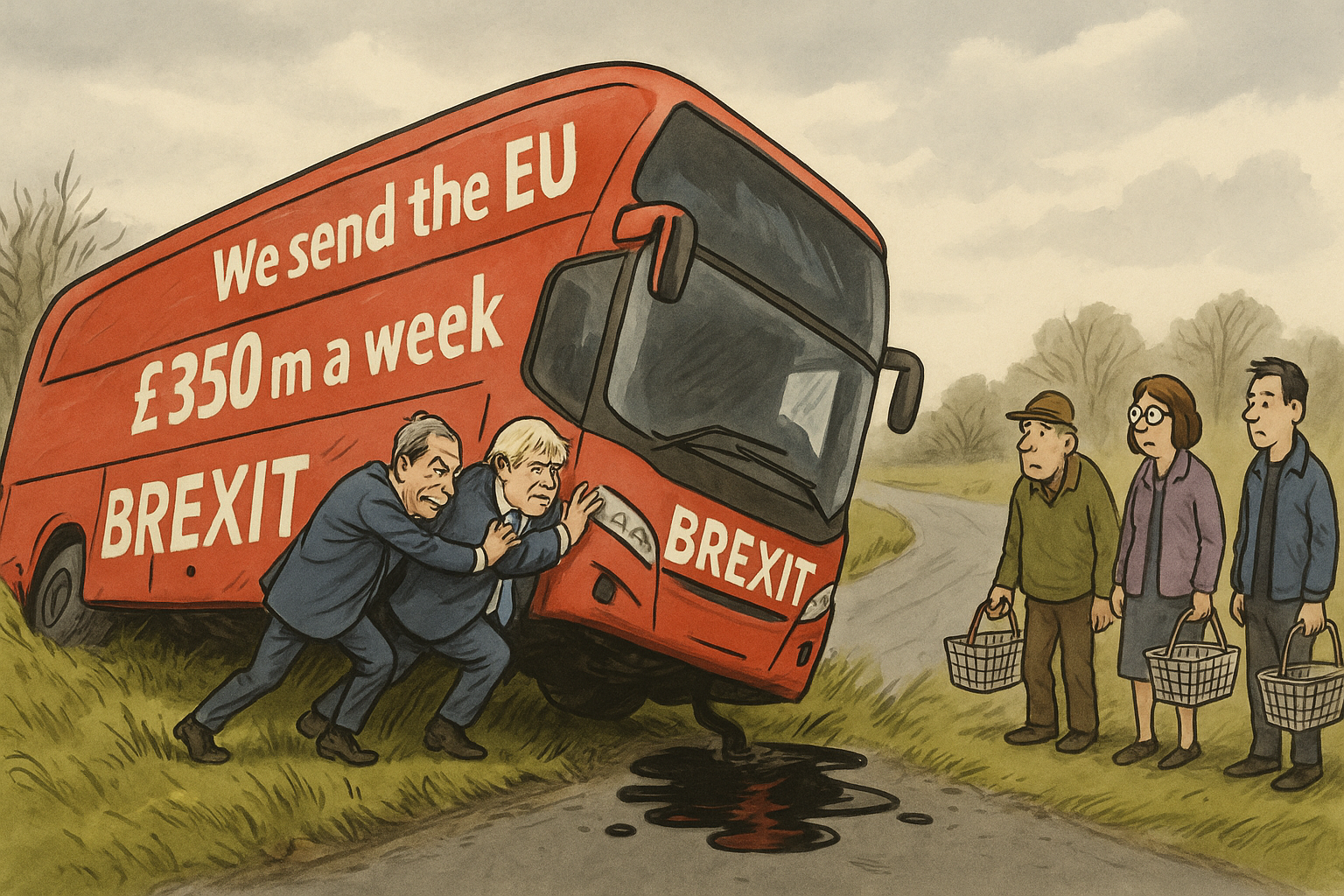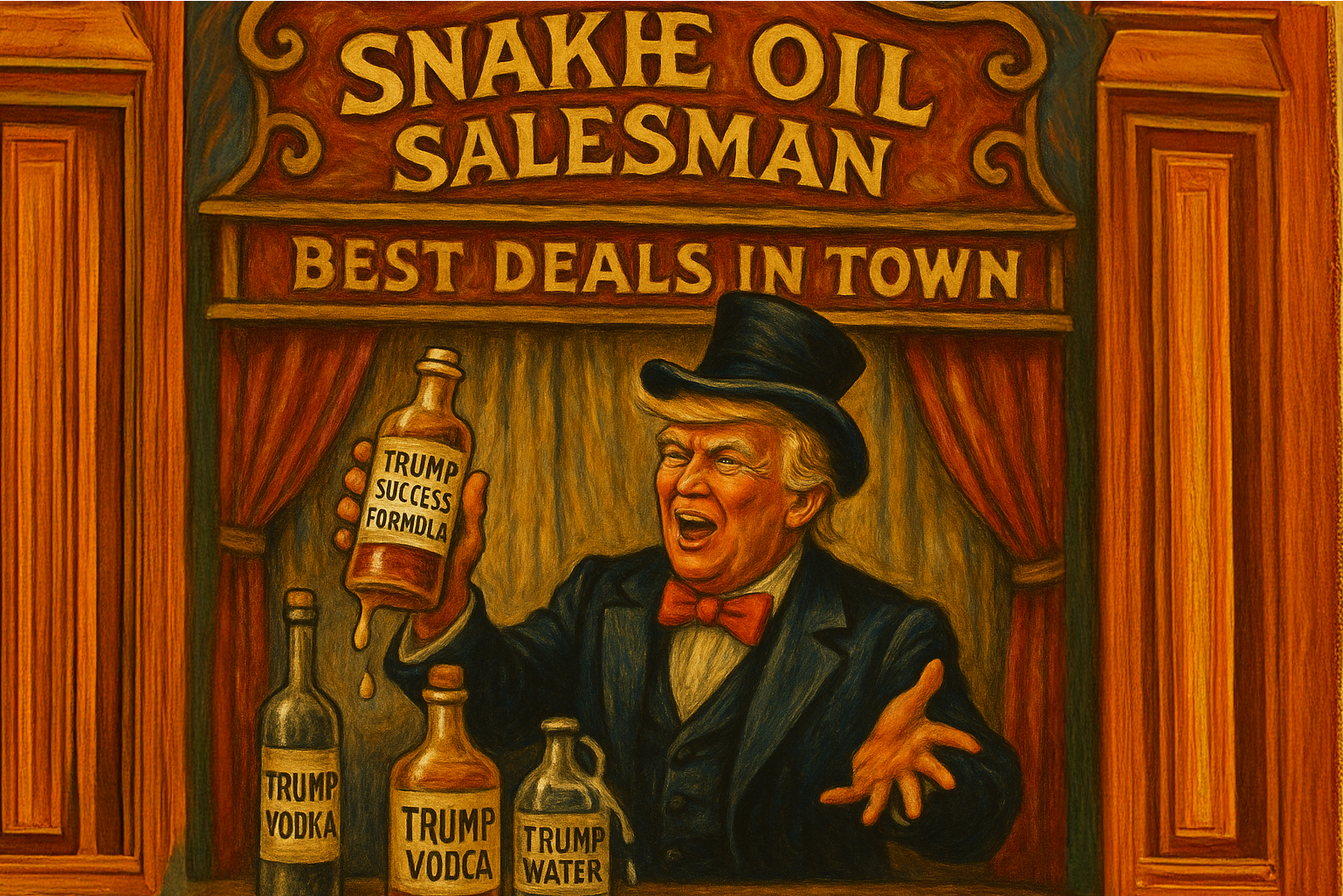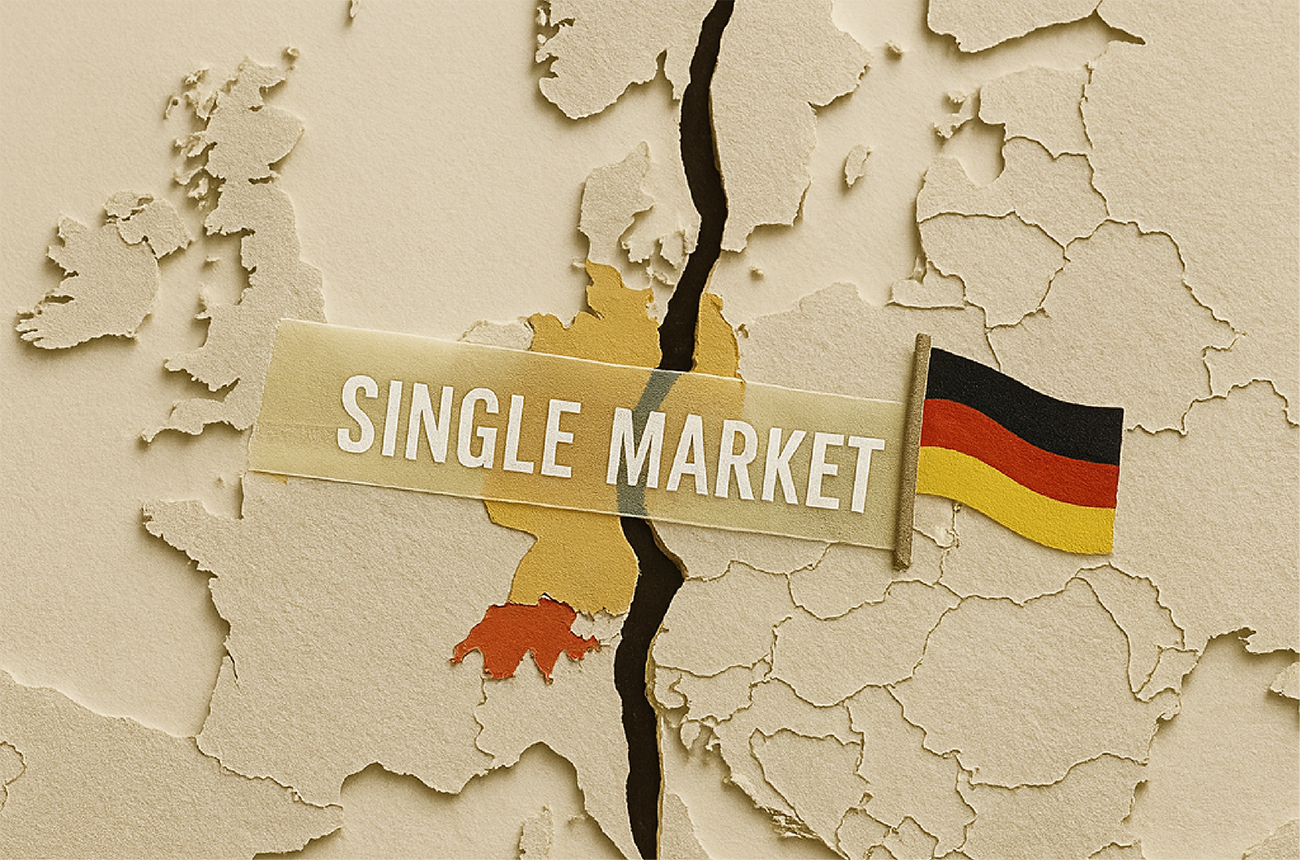Stay in the loop!
Summary
Democracy in the United States, the United Kingdom, and the European Union has been hollowed out by billionaires who treat politicians like playthings. Since the Citizens United ruling in the US, money has replaced ideas in elections. In Britain, peerages, donations, and media ownership give billionaires direct control. In Europe, lobbying networks and billionaire-funded think tanks quietly dictate regulation. Across all three, the outcome is the same: tax systems rigged for the wealthy, weak labour protections, climate inaction, and growing public cynicism. Unless radical reforms are introduced, democracy will remain a billionaire marketplace.
The Billionaire Takeover of US Politics
The United States is the clearest example of what happens when money is allowed to overwhelm democracy. In 2010, the Supreme Court issued the Citizens United v. FEC ruling, which declared that corporations and wealthy individuals could spend unlimited sums on elections under the guise of free speech. The ruling opened the floodgates. In 2010, billionaires contributed around $31 million to campaigns (Americans for Tax Fairness). By 2020, that number had exploded to $1.2 billion. In the 2024 federal elections, contributions from just 100 billionaire families reached an estimated $2.6 billion, which accounted for nearly one-sixth of all political funding (The Guardian). That represents a one-hundred-and-sixty-fold increase in billionaire political contributions in just fourteen years.
This is not charity; it is investment. Billionaires buy politicians because they expect a return in the form of tax cuts, deregulation, and favourable policy. For example, casino magnate Sheldon Adelson and his wife Miriam spent $218 million on Republican causes in 2020 alone (Reuters). Adelson got what he wanted: low taxes for the ultra-wealthy and foreign policy decisions that aligned with his interests, including moving the U.S. embassy to Jerusalem. On the Democratic side, billionaire Michael Bloomberg poured over $1 billion into his own presidential campaign and other Democratic races in 2020 (BBC). Bloomberg effectively tried to purchase the presidency. When that failed, he redirected his spending into supporting Joe Biden and down-ballot Democrats.
In the 2024 cycle, Elon Musk emerged as the single largest individual donor, spending around $277 million to support Donald Trump–aligned Super PACs, including America PAC and “RBG PAC” (Washington Post). Musk even secured a role advising the so-called Department of Government Efficiency (“DOGE”), a vanity project inside the Trump administration. By 2025, the relationship had soured, leading to a spectacular public falling out between Musk and Trump (Time). But Musk had already shown how casually billionaires can throw hundreds of millions into elections to buy temporary political power.
He was not alone. Banking heir Timothy Mellon spent at least $115 million supporting pro-Trump committees in 2024 (Politico). The Winklevoss twins, famous for their role in the early days of Facebook, launched the Digital Freedom Fund PAC in 2025, pledging $21 million to support pro-cryptocurrency and conservative candidates (Politico). Even on the left, wealthy donors flexed their financial muscle, hedge fund heiress Elizabeth Simons gave $250,000 to a Super PAC backing Zohran Mamdani, a socialist-leaning candidate in New York (Bloomberg).
The tools for this influence are varied. Super PACs can raise and spend unlimited sums provided they do not “coordinate” directly with candidates, a legal fiction that is easily circumvented. In 2020, the top ten donors to Super PACs—almost all billionaires—contributed more than $640 million combined (OpenSecret). Then there are 501(c)(4) “social welfare” nonprofits, which can raise and spend unlimited amounts without ever disclosing their donors. The Koch network perfected this model, funnelling hundreds of millions through innocuously named groups that campaigned against climate action, fought unions, and shaped judicial appointments (The Guardian).
Lobbying is another pillar of billionaire influence. Amazon and Meta spend tens of millions annually in Washington to preserve tax breaks and prevent antitrust crackdowns (Reuters). As the Princeton study by Gilens & Page in 2014 famously concluded, the U.S. government overwhelmingly responds to the interests of the top one percent and well-connected elites, while the views of average citizens make little difference to policy outcomes (The Guardian).
The statistics from the 2022 midterms make the situation stark. The top twenty individual donors spent more than $800 million—more than the combined contributions of millions of small donors (Brennan Centre for Justice). In practice, American democracy has become “one dollar, one vote.”
The result is predictable. In 2025, the legacy of the 2017 Trump tax cuts continues to benefit the ultra-wealthy. According to an analysis by the Institute on Taxation and Economic Policy, households in the top 1% are projected to receive an average annual tax cut exceeding $60,000, reaffirming the disproportionate advantage these policy changes continue to provide to America's richest earners (CBPP). Efforts to raise the minimum wage or expand healthcare coverage stall in Congress, even though large majorities of Americans support them (Pew Research). Billionaire donors have successfully bought a government that listens to them and tunes out everyone else.
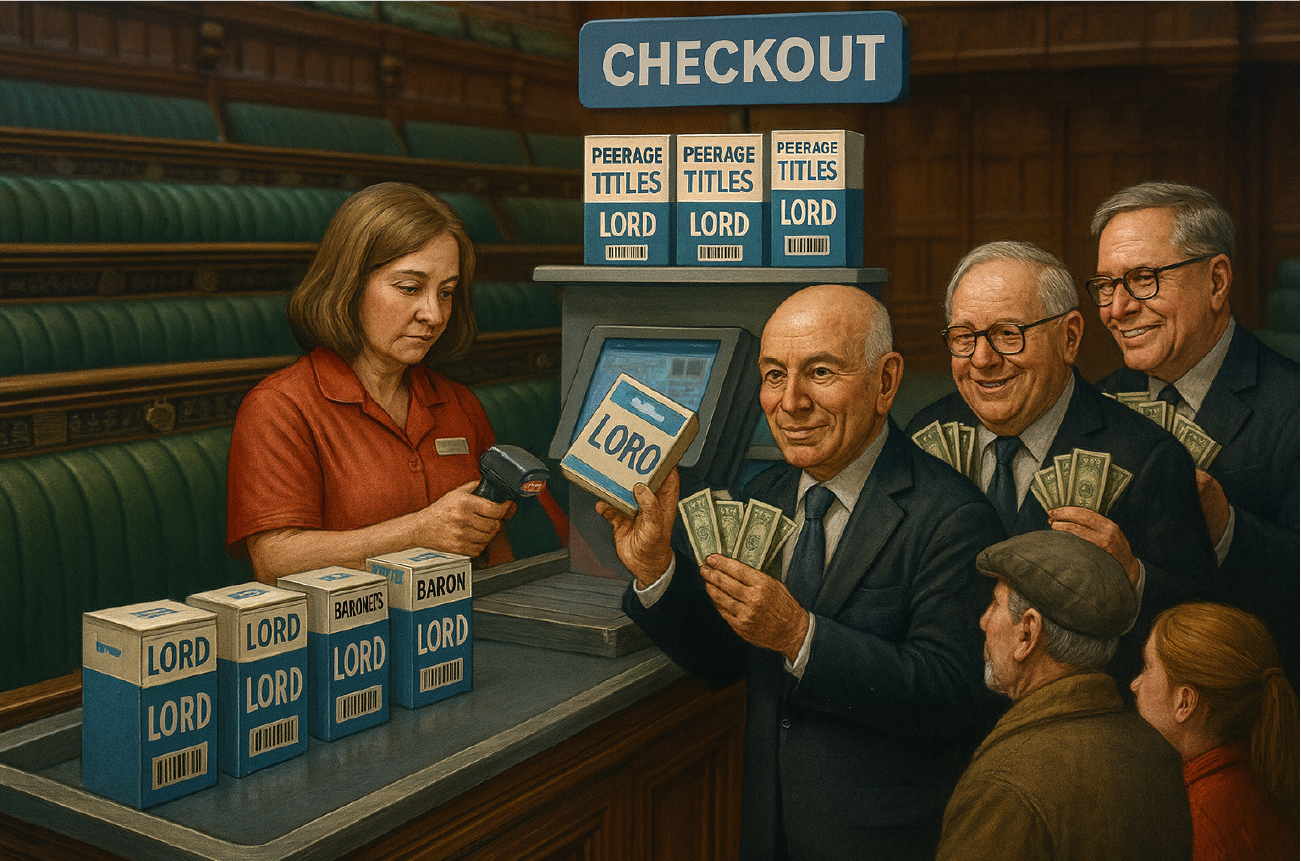
Cash for Peerages and British Media Control
The United Kingdom likes to claim its politics are less corrupt because it bans Super PACs and limits campaign spending during elections. But the reality is that billionaire influence flows just as freely, only through different channels. In Britain, billionaires buy power through donations, peerages, and media ownership.
The numbers tell the story. In 2023, just nineteen mega-donors accounted for two-thirds of all private political donations in Britain (Byline Times). Between 2001 and 2024, around £115 million in political donations came from suspicious or opaque sources—roughly one in every ten pounds donated (Hansard). The system is deeply compromised.
The rewards for donors are blatant. Billionaire financier Lord Cruddas donated millions to the Conservative Party and was elevated to the House of Lords in 2020 despite regulators’ concerns (BBC). Donors who join the Conservative Party’s “Leaders Group” by contributing at least £50,000 per year get private dinners with the Prime Minister and senior ministers (The Guardian).
Foreign-linked donations remain a problem too. Lubov Chernukhin, the wife of a former Putin ally, donated more than £2 million to the Conservatives and even paid £160,000 to play tennis with Boris Johnson (Financial Times). More recently, reports emerged in 2024 that Elon Musk was considering a donation of up to £79 million to Nigel Farage’s Reform UK party (The Guardian). The scandal forced Parliament to consider capping donations to limit foreign-linked influence.
Beyond cash, Britain’s billionaires exert enormous power through media ownership. Rupert Murdoch’s newspapers, the Barclay brothers’ Telegraph, and Lord Rothermere’s Daily Mail have shaped public opinion for decades. Their role in Brexit was decisive: billionaire-owned outlets pushed relentless anti-EU propaganda (Reuters), amplifying the voices of wealthy backers such as Arron Banks.
Despite disclosure requirements for donations above £7,500, there is no cap on how much can be given. Enforcement by the Electoral Commission is weak, and fines are trivial compared to donation sizes (The Guardian). As a result, British politics is effectively for sale, just as in the United States.
European Lobbyists, Loopholes, and Philanthro-Capture
The European Union presents itself as a bastion of social democracy, but Brussels has become a playground for corporate lobbyists and billionaire influence. There are an estimated 25,000 lobbyists in Brussels, most of them representing corporations and wealthy interests. The top 162 lobbying firms spend more than €343 million annually to influence EU institutions (Corporate Europe Observatory).
The influence of this lobbying is visible in policy. Climate legislation is repeatedly watered down under pressure from fossil fuel billionaires and industrial giants (Politico). Big agricultural firms lobby against green farming rules, while transport and energy tycoons fight stricter emissions standards. Technology billionaires, led by U.S. and EU firms alike, deploy armies of lawyers and lobbyists to fend off antitrust rules or digital privacy enforcement (Financial Times).
Billionaires also shape EU policy through philanthropic fronts. Supermarket heir Lord Sainsbury secretly bankrolled science and research lobbying groups that pushed to deregulate GMOs and promote corporate-friendly policies (The Guardian). Similar strategies are used by tech moguls who fund “innovation think tanks” that, unsurprisingly, argue against breaking up monopolies (Reuters).
Meanwhile, EU billionaire wealth continues to soar. In 2024, EU billionaires gained €138 billion, the equivalent of €376 million every single day, with 74% of this wealth increase coming not from innovation but from inheritance or entrenched monopoly positions (Oxfam).
The EU’s transparency regime is voluntary, and enforcement is weak. Lobbyists are supposed to register their activities, but many do not. Meetings between EU commissioners and corporate representatives often go undocumented (Transparency International). The revolving door spins freely, with former commissioners and parliamentarians moving straight into corporate boardrooms after leaving office (Politico).
The Death of Democracy and WhatComes Next
Across the US, UK, and EU, the pattern is the same: billionaires spend pocket change to reshape politics in their favour. In the US, just 100 billionaire families poured a record $2.6 billion into the 2024 federal election—representing roughly one-sixth of all political spending that cycle (Americans for Tax Fairness/Guardian, April 2025). For them, buying politicians costs less than buying a yacht.
The consequences are devastating. Tax policy is rigged for the wealthy, with endless loopholes and cuts that benefit billionaires. Climate action is delayed or sabotaged to protect oil barons and industrial tycoons. Labour protections are eroded, leaving workers disempowered and profits concentrated at the top. Most dangerously, public trust in democracy collapses. Voters see that no matter who they elect, the billionaires always win. This cynicism fuels authoritarian populists who rail against “elites” while secretly serving their own billionaire backers.
Reform is possible but politically difficult. In the United States, serious change would require public financing of campaigns, strict contribution caps, real-time transparency, and ultimately overturning Citizens United. In the United Kingdom, reforms would include caps on donations, stronger Electoral Commission enforcement, and ending the sale of peerages. In the European Union, mandatory lobby registers, penalties for noncompliance, and restrictions on the revolving door between politics and business would be essential.
Innovative ideas are emerging. Some US cities have experimented with “democracy vouchers”, giving every citizen a voucher to donate to candidates, which dilutes billionaire money (Seattle Times). New York City’s small-donor matching system has also proven effective at amplifying ordinary voices (Brennan Center). In the UK, proposals to ban foreign-linked donations and cap domestic ones could help level the field. In the EU, civil society organisations have called for full lobby transparency and stronger public-interest funding to counterbalance corporate lobbying (Transparency International).
But billionaires will fight tooth and nail to preserve the status quo. For them, politics is a game where they buy politicians like children buy toys. If one toy disappoints, they discard it and purchase another. This childish dynamic has deadly serious consequences for the public, who are left governed by politicians serving donors rather than citizens.
Unless these structural problems are confronted, democracy risks devolving fully into plutocracy, government of the rich, by the rich, for the rich. In truth, we may already be there.

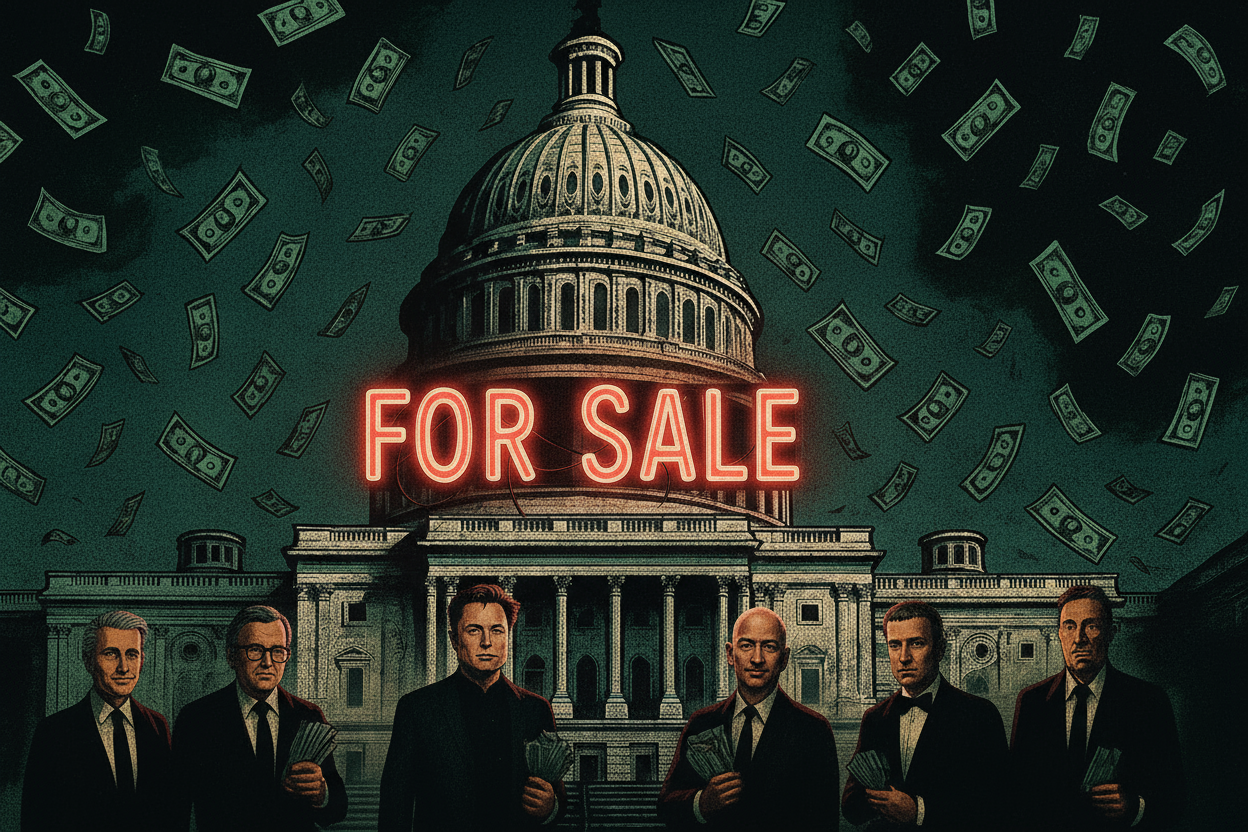

-01.png)

